Unit 2. BUSINESS COMMUNICATION: FACE TO FACECAREER PROSPECTS FOR LANGUAGE STUDENTS
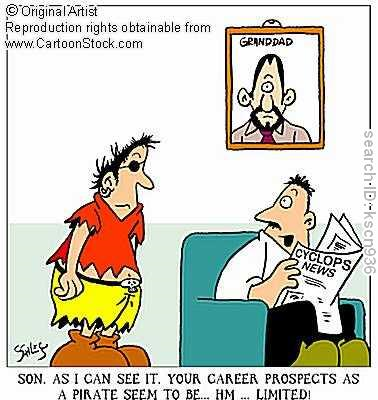
2.1. Listening Development
Assignment 1. Listen to the recording to Unit 2. David Evans, an epert in Business English answers Carmela’s questions on how to introduce new people to the work place. Answer the questions.
- What happens if a new comer isn’t properly introduced?
- How much information should a new comer be given?
- What is important to remember while showing a new staff member around on their first day?
- What reduces the monotony of numerous introductions on the first day?
Jot down the words and expressions, which the speakers define and exemplify in short dialoguse. Find the Russian equivalents.
2.2. Vocabulary Enrichment
Assignment 1. Complete each sentence by using a word from the box.
post trade career occupation vocation
position
- Agricultural work is traditionally seen as a male ....
- He had a distinguished ... as a journalist.
- He makes a good ... as a builder.
- He was a consultant physician by ....
- He’s desperate to pursue his ... as an artist.
- He’s just landed himself a highly-paid ... in the City.
- How long were you in your previous ...?
- It doesn’t require skill – it’s a matter of sheer hard ....
- She applied for the new ... of training officer.
- She’s a carpenter by ....
- What ... are you in?
Assignment 2. Give synonyms to the following (consult the Active Vocabulary section).
- to be jobless -
- to take on -
- to achieve -
- pay -
- to manage -
- to dismiss -
Assignment 3. Complete the chart.
| NOUNS | VERBS |
|---|---|
| 1. employment | |
| 2. | dismiss |
| 3. | retire |
| 4. offer | |
| 5. | promote |
| 6. | achieve |
| 7. choice | |
| 8. | manage |
| 9. rise / raise | |
| 10. | resign |
Assignment 4. Fill in the blanks. The first letter of each missing word is given.
There is a lot of u nowadays so it is getting more and more difficult to get the kind of j you really want. Then you have to decide what is more important to you - how much you e or job satisfaction? Do you want to work with your hands (called m work) or do you prefer to work in an office (called clerical work)? Do you prefer to work indoors or o? Whatever you decide, when you are thinking about a career, or applying for a job, you will find the following vocabulary useful.
Assignment 5. Give the opposite to the following:
|
|
Assignment 6. Fill the gaps with an appropriate word from the list.
sack salary career trainee promotion
job pension management qualifications
- choose a ... in computers
- go for an ...
- go into ...
- to get a ... as a waiter
- to get the ...
- to earn a decent weekly ...
- to get an annual ... increase
- to get a ... at sixty-five
- to win ...
- to get a good ... from your tutor
- to have the right ... for the job
- to have two years' relevant ...
- to accept an ... of a job
- to take a young person on as a ...
Assignment 7. Fill in the blanks with one or more suitable words from the diagram.
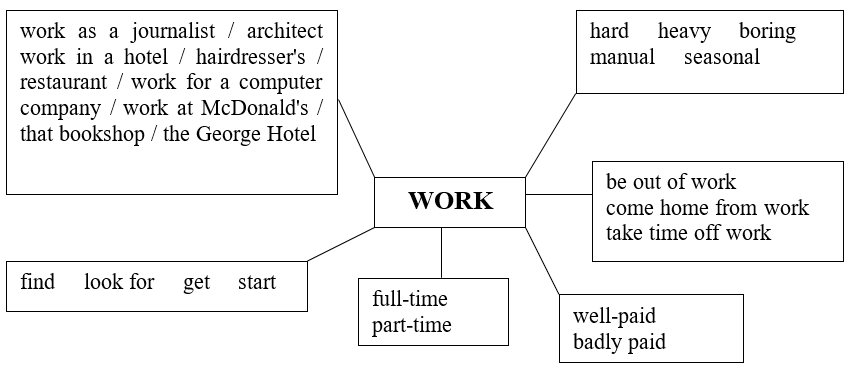
Example: Why don't you go out and look for work instead of sitting around all day doing nothing?
- Jane is working a software developer for Microsoft.
- My dad worked a factory all his life.
- His wife works the local council.
- I'll talk to you about the problem when you come home work.
- Arthur has been out work ever since they closed the mine.
- Her boss gave her time work to go and see the doctor.
Assignment 8. Read the following texts and fill in the missing phrasal verbs from the box.
- to be cut out for
- to fill in
- to get by
- to get on
- to get on
- to get on with
- to get through
- to go in for
- to get smb (me) down
- to hand in
- to look through
- to pick smth (it) up
- put in
- put up with
- to take up
- to close down
- to cut back on
- to take smb (me) on
- to turn smb (me) down
Jeremy
At the moment I have a very good, well-paid job that I enjoy doing, but it hasn't always been like this.
Several years ago I used to work as a salesman for a small company that specialized in making motor components for the car industry. It was the sort of job where you had to I committed to your product, you had to believe in it and do everything possible to sell it. But times were hard, and a lot of companies were going out of business, so our company started the number of people it employed in order to save money fortunately I wasn't one of them – but in the end it had , and I found myself out of work for the first time in my life. I applied for several jobs in similar companies, but wasn't successful – every one of them .
Then one day I was the paper and I came across an advertisement f courses that specialized in journalism. I an application form, sent it off, was accepted onto the course, studied hard, passed my exams, and became a qualified journalist. I then wrote to a small magazine for the car industry, attended an interview with dozens of other applicants and, to my surprise, they . The magazine grew size and popularity, I moved from writing articles to being subeditor, and this year I became the editor, so I suppose, I've been lucky, really.
Angela
When I was young my father always told me how important it was to in life and be a success. 'You must make something of your life,' he used to say. I think he wanted me to be a doctor or an engineer or something like that. And I can remember how disappointed he was when I left school early and started work as a secretary.
It was a small, badly-run company, and when I went there they told me the job wasn’t difficult and I would soon . At the beginning I liked the job, but as time passed the work started to more of my time and I found I was working late in the evenings and even at weekends. And in addition to this I had to poor working conditions and a low salary – I earned just enough to - and there were no promotion prospects at all. All this really . And then I started to wonder if I was really this kind of work – it didn't really suit me or my particular abilities.
Then one day – I remember I'd been working very hard that month and had a lot of extra hours – I went to see my boss to ask for some time off work. I needed to visit my mother, who wasn't well at that time. I have to say that I didn't my boss very well. Anyway, he refused point-blank. He said that it was out of the question and he didn’t want to hear another word. I tried explaining but I just couldn't to him. He wouldn't listen. So I walked out of the office, and as far as I was concerned, that was the last straw. The next day I my resignation, and I said to myself that I would never put myself in that kind of position again. I decided to return to studying and law. I graduated from London University and now I am starting to make my way in the world. As my father used to say, ‘The world is your oyster'.
So was my father right? Is it important in the world? Well, in some ways it is but it depends on how you measure success and what you want to get out of life. After all there are other things in life besides work.

Assignment 9. Read the following texts and fill in the gaps with the phrases given in the list below.
fancy feel like going in to feel quite tempted got my eye on hate to admit
have every intention of have half a mind to in two minds intend to mean to
keen to longing for mean to find not clear on quite like
rather like to be quite honest undecided as to very much into was dying to
would have given my right arm for wouldn't mind yearned for would quite like
Ron
Just five years ago ago I ... leave school. I ... start work. I ... a nice steady job in a well established firm, and ... work my way up from the bottom. I'd rather not think about how many jobs I had. All I've ever asked for a bit of security. Instead I settled for odd jobs here and there, compromised left, right and centre and made do with what came my way. At times I ... a comfortable job, regular salary and some sort of prospects. I ... a second chance. Now with a university degree and a good knowledge of French and Italian I ... making a break. I've ... a company just down the road. I ... write to them today. And if I get the job I'm ... keep it longer than the others, so I'm ... make a good impression. But ..., I don't ... the office again. I ..., but I'm ... having to sit behind a desk from nine to five, I'm ... something different. I ... the idea of being a journalist. I'm ... travelling and enjoy taking challenges and meeting a lot of people. Every time it's like a new experience. And it would help me to update my knowledge of the languages.
As you can see I'm still ... what my future career will be. I'm sure that as long as I am trying to keep up to my aspirations, have a desire to learn and succeed, everything will come out right for me. 1 just need to pull up my socks.
Ruth
I'm ... what to do after the University. I ... to start work – the real world, but on the other hand I'd ... three years doing nothing very much and give myself time to make a choice of a career. To tell the truth, I don't really ... getting tied down to one profession just yet. There are so many options open today, so many alternatives to pick from, so many possibilities from which to choose. But you have to ask yourself what is more important to you – job satisfaction or money. It's perfect when these two are combined but sometimes it doesn't come out like this. Therefore I think that when you are choosing a career you have to have some realistic expectations.
Up to how I've been a very business-oriented person. I used to dream of making my way up to the top of some firm or other. I wanted to work in pleasant surroundings, to keep civilised hours, to have a nice salary and good career prospects. But lately I've been think¬ing a lot about teaching as a career. I think the feeling of job satisfaction in this profession is the greatest. Teaching English to foreign students ... me, I really like the sound of it. Though I ... that I'll make a good teacher as I lack tolerance and self-discipline.
Quite frankly, I ... working in a travel agency. I'm the kind of person who finds it boring to stay too long in one place, I begin to get itchy feet. And this profession involves travelling, seeing new places, meeting new people. So I'm still ... what career to choose. But there is some time left to make up my mind. I simply want to be happy.
2.3. Reading Improvement
Read a newspaper article about working as a conductor on a British train. Choose the most suitable heading from the box for each part of the article (1-8). There is one extra heading which you do not need to use. There is an example at the beginning.
Ready for duty Dealing with danger There and back again Time to get up
TRAIN CONDUCTOR
Ticket checks, travel questions and making sure passengers reach their destination safely are all part of a day’s work for senior conductor Julie King.
1. ...
The earliest shift we do starts at 4.30 in the morning, so if I’m on that one, I’ll get up at three and watch a bit of TV to catch up on the news before driving to work. If I’m starting at nine, I can have a lie-in.
2. ...
I’m based on Portsmouth to London line and the first thing I do is report to the supervisor, who makes sure we are fit for work. Then I pick up my ticket machine, read all the notices to check nothing’s happened overnight I’m not aware of, have a cup of tea, collect my work schedule and make sure my trainbook is in order – we have to write down each stop on every trip. After that it’s down to the platform to put my kit in the conductor’s van and start the day.
3. ...
A typical day would be two return trips between Portsmouth and London. We aim to walk through the train after every stop, checking tickets and counting heads. Sometimes we walk through just to make sure everything’s all right. Once we reach London, we take a 20-minute break to clear our heads before setting off on the return journey. When we get back to Portsmouth, I’ll make sure the train is cleaned, then it’s up to London again with more ticket checks and more announcements to passengers.
4. ...
A lot of the job is about customer care. We deal with all sorts of questions and can find out the information passengers want somehow. We carry timetables and fare books, and if we are asked something we can’t find on the spot, we use the phone on the train to ring the information office. We can also organise taxis for people if trains have been cancelled or are late and there is no alternative train service for them to get home on.
5. ...
The electronic communicators we carry are used to let us know about any problems with the service – not just on that line but on other routes as well. If it’s important, we’ll pass the information on to the passengers in a public announcement. The communicator doesn’t make a sound and only I’m aware of it going off. It wouldn’t be any good if it made the usual ‘bleeping’ noise – you’d get people reaching for their mobile phones as we walked through the train.
6. ...
Safety is the other important aspect of the job. If the train breaks down or is derailed, it’s the conductor’s job to protect the back of the train. The signalman will know where you are and warn the train behind to slow down, but we have to get out and walk down the track laying small packets of explosive. When the train behind goes over them, that’s the signal to the driver to stop. It hasn’t happened to me yet, but I’d know what to do if it did. At the moment I’m learning to be an operations trainer – training up new employees on the safety aspects of the railway.
7. ...
I’d wanted to be a conductor since I was a teenager. I’d got to know the staff when I travelled on the trains to school and it seemed like interesting work. I left school at 16 and started a training office manager, but I soon moved on to working on the trains.
8. ...
At the end of the day I sign off and hand over the ticket machine and any money I’ve collected selling tickets. I like the travelling side of the job and meeting people. We get to know the regular passengers quite well and a friendly comment can make your day really happy.
2.4. Writing Enhancement
Effective Essay Builder
I. Prewriting Essays
What is the prewriting stage?
The prewriting stage is when you prepare your ideas for your essay before you begin writing. You will find it easier to write your essay if you build an outline or a plan first.

Six Prewriting Steps:
❋ Think carefully about what you are going to write. Jot down all your ideas and associations. Even if they seem awkward or out of place now they can serve you as a starting point for further associations.
Assignment 1.
❋ Brainstorming. Generate ideas associated with the topic “My Future Career Prospects”. Expand the spidergram given below. Ask yourself the following questions:
– What question / questions am I going to answer in this essay?
– What facts do I need for the essay?
– How can I make this essay interesting?
– What else do I want to say about this topic?
– Why should people be interested in this topic?
– Why is this topic important?
You do not need to spend a lot of time doing this; just write enough to help you remember why and how you are going to write your paragraph or essay.
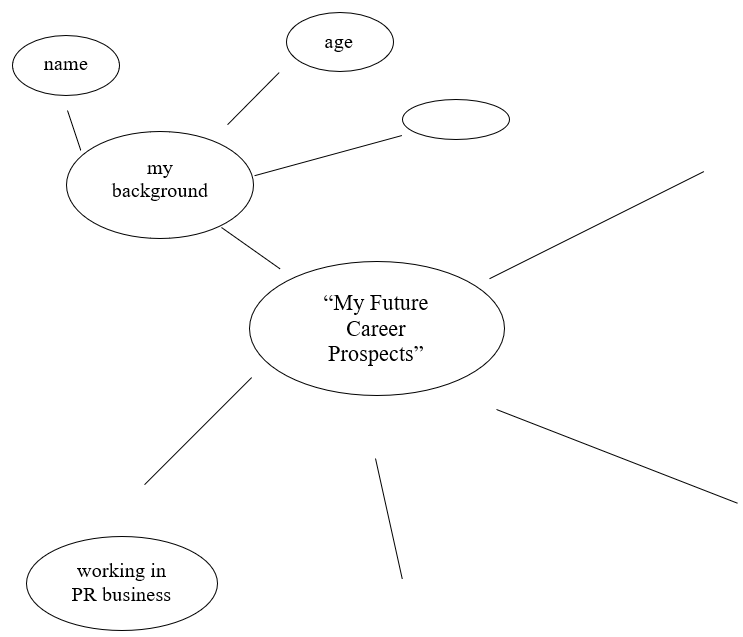
❋ Find the main idea of your essay. Choose the most important point you are going to present. If you cannot decide which point is the most important, just choose one point and stick to it throughout your essay.
❋ Organise your facts and ideas in a way that develops your main idea. Once you have chosen the most important point of your paragraph or essay, you must find the best way to tell your reader about it. Look at the facts and your own ideas on the topic. Decide which facts and ideas will best support the main idea of your essay. Once you have chosen the facts and ideas you plan to use, ask yourself which order to put them in the essay.
❋ Think of a way to summarise your ideas. If you can’t do it at this stage, leave it until you have written your essay. Just make sure you don’t forget about it.
Assignment 2. Write down an outline that you can use to guide yourself as you write your essay:
- I. Introduction (the main idea)
-
II. Body
- Supporting Paragraph (supporting idea 1)
- Supporting Paragraph (supporting idea 2)
- Supporting Paragraph (supporting idea 3)
- III. Summary Paragraph
❋ Check whether you’ll need any additional facts to develop the main idea. Think where to get them.
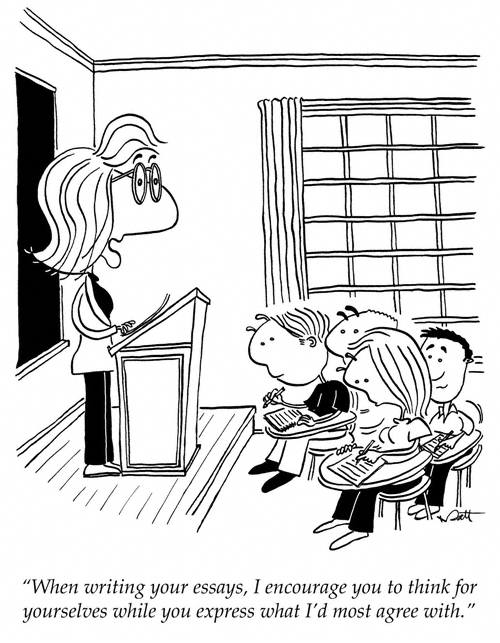
II. Writing Essays
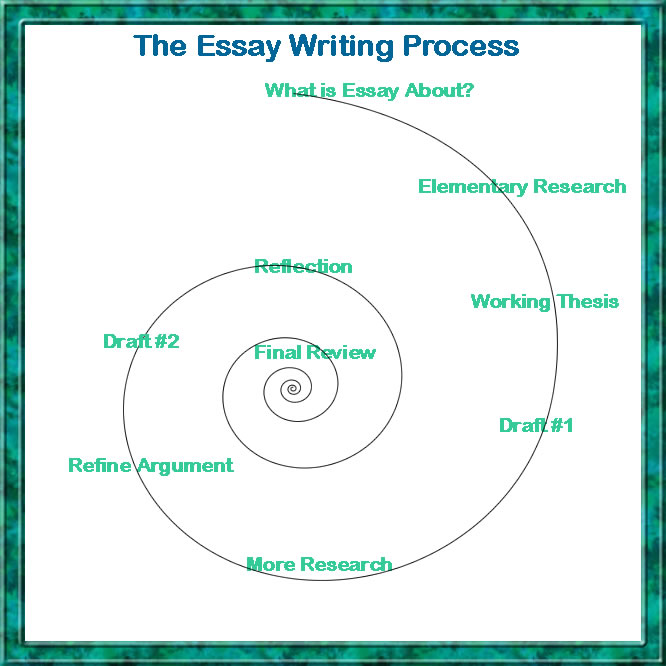
What is the writing stage?>
The writing stage is when you turn your ideas into sentences.
Five Writing Steps:
- For the introduction, write the thesis statement and give some background information.
- Develop each supporting paragraph and make sure to follow the correct paragraph format.
- Write clear and simple sentences to express your meaning.
- Focus on the main idea of your essay.
- Use a dictionary to help you find additional words to express your meaning.
Warning!!! © All rights for all textbooks are reserved by their publishers. No part of any publication may be reproduced in your essay without the prior written permission of the publishers. Though teachers more than welcome abundant use of your active vocabulary they expect to see your own ideas presented in your essay.
Introduction Paragraph
What is an introduction paragraph?
The introduction paragraph is the first paragraph of your essay.
What does it do?
It introduces the main idea of your essay. A good opening paragraph captures the interest of your reader and tells why your topic is important.
How do I write one?
-
Write the thesis statement. The main idea of the essay is stated in a single sentence called the thesis statement. You must limit your entire essay to the topic you have introduced in your thesis statement.
-
Provide some background information about your topic. You can use interesting facts, quotations, or definitions of important terms you will use later in the essay.
Example:
English Speech Practice classes have been a part of my life for over a year already. They have evolved into an extremely popular sport watched and played by both students of my group and our teachers. The game has got several stages that I would like to describe.
Assignment 3. Write the introduction paragraph of your essay:
Supporting Paragraphs
What are supporting paragraphs?
Supporting paragraphs make up the main body of your essay.
What do they do?
They develop the main idea of your essay.
How do I write them?
-
List the points that develop the main idea of your essay.
-
Place each supporting point in its own paragraph.
-
Develop each supporting point with facts, details, and examples.
To connect your supporting paragraphs, you should use special transition words.
Transition words link your paragraphs together and make your essay easier to read.
Use them at the beginning and end of your paragraphs.
Examples of transition words that can help you to link your paragraphs together:
| For listing different points | For additional ideas |
| First, Second, Third, etc. |
Another… In addition to… Related to … Furthermore, Also, |
| For counter examples | To show cause and effect |
| However, Even though… On the other hand, Nevertheless, |
Therefore, Thus, As a result of… Consequently |
Like all good paragraphs, each supporting paragraph should have
- a topic sentence;
- supporting sentences;
- and a summary sentence.
Summary Paragraph
What is a summary paragraph?
The summary paragraph comes at the end of your essay after you have finished developing your ideas. The summary paragraph is often called a "conclusion."
What does it do?
It summarises or restates the main idea of the essay. You want to leave the reader with a sense that your essay is complete.
How do I write one?
- Restate the strongest points of your essay that support your main idea.
- Conclude your essay by restating the main idea in different words.
- Give your personal opinion or suggest a plan for action.
Example:
Overall, English Speech Practice classes have helped to improve our language skills.
The sport is more captivating and exciting as a result of permanent danger involved.
For these reasons, English classes are horrifying for teachers to deliver and great fun for students to attend.
Assignment 4. Write the summary paragraph of your essay:
III. Editing Essays
What is the editing stage?
The editing stage is when you check your essay for mistakes and correct them.
Editing Steps:
Vocabulary
- Read your draft essay and underline all the expressions from your active vocabulary you’ve used.
- See what other expressions can be used. Add them at relevant places.
Grammar and Spelling
- Check your spelling.
- Check your grammar.
- Read your essay again.
- Make sure each sentence has a subject.
- Make sure your subjects and verbs agree with each other.
- Check the verb tenses of each sentence.
- Make sure that each sentence makes sense.
Style and Organisation
- Make sure your essay has an introduction, supporting paragraphs, and a summary paragraph.
- Check that you have a thesis statement that identifies the main idea of the essay.
- Check that all your paragraphs follow the proper paragraph format.
- See if your essay is interesting.
Home Assignment 1. Write a draft of the body of your essay, edit it following instructions in the Editing Essays section and write a clean copy to hand in following instructions in the Publishing Essays section.
Correction of Mistakes
What is correction of mistakes?
Correction of mistakes takes place after you receive your essay checked by the teacher with your mistakes marked or corrected (for correction symbols used by your teacher see Appendix 2).
Five steps of correcting mistakes:
- Identify what your mistake is. If necessary, consult Grammar books, dictionaries or your teacher.
- Rewrite each sentence containing a mistake underlining the correct variant.
- In brackets briefly explain what the rule is for each case.
- If it was a spelling mistake write two lines of the word.
- Memorise the correct variant.
Example:
A student hate coming late but can’t do anything about it. Subject Predicate Agreement
Correction of mistakes
A student hates coming late… (third person singular)
Home Assignment 2. Do correction of mistakes. If there more than 5-7 mistakes per page in the essay, rewrite it correctly.
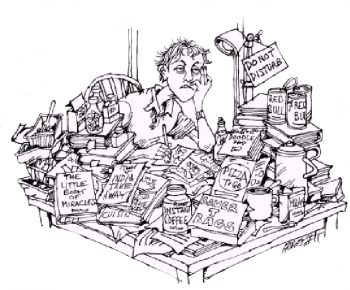
Just have written up my first essay!
2.5. Speaking Reinforcement
Assignment 1. Get ready to present your essay in class. Remember that you can peep into your notes but you can’t read.
Assignment 2. After you have listened to essay presentations, you’ll be asked to discuss what you liked about them, which ideas were original, and which arguments were the strongest, etc. Get ready to give your commentary.
You can evaluate your own presentation noting any areas you think are especially good, or that need attention: organisation, content, language, delivery, body language, visual aids, overall impression.
Listen attentively to your classmates’ feedback, to their suggestions for improvement, and try to get better on any areas of wealness.
